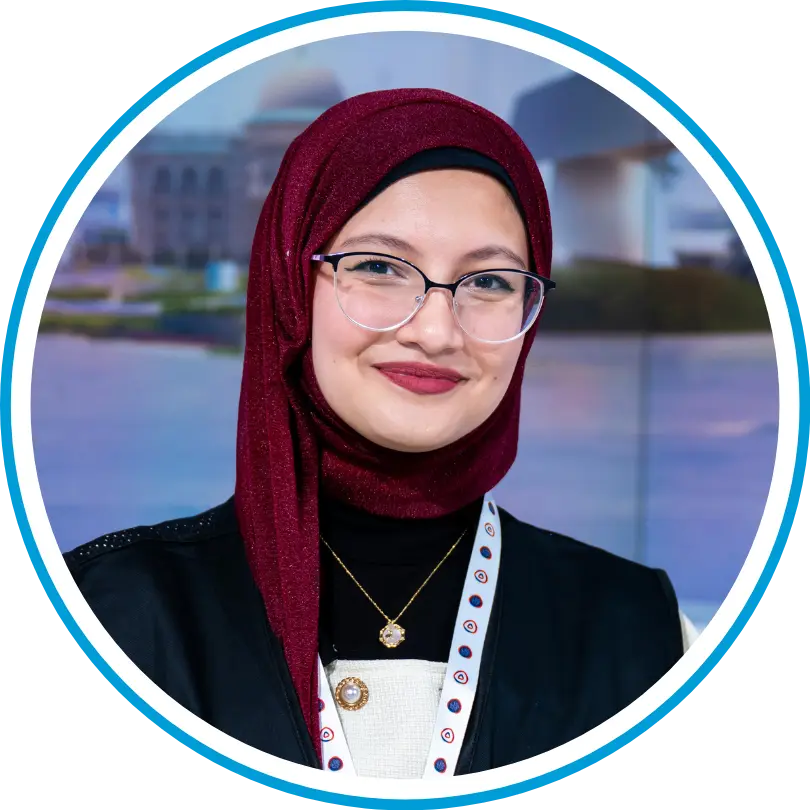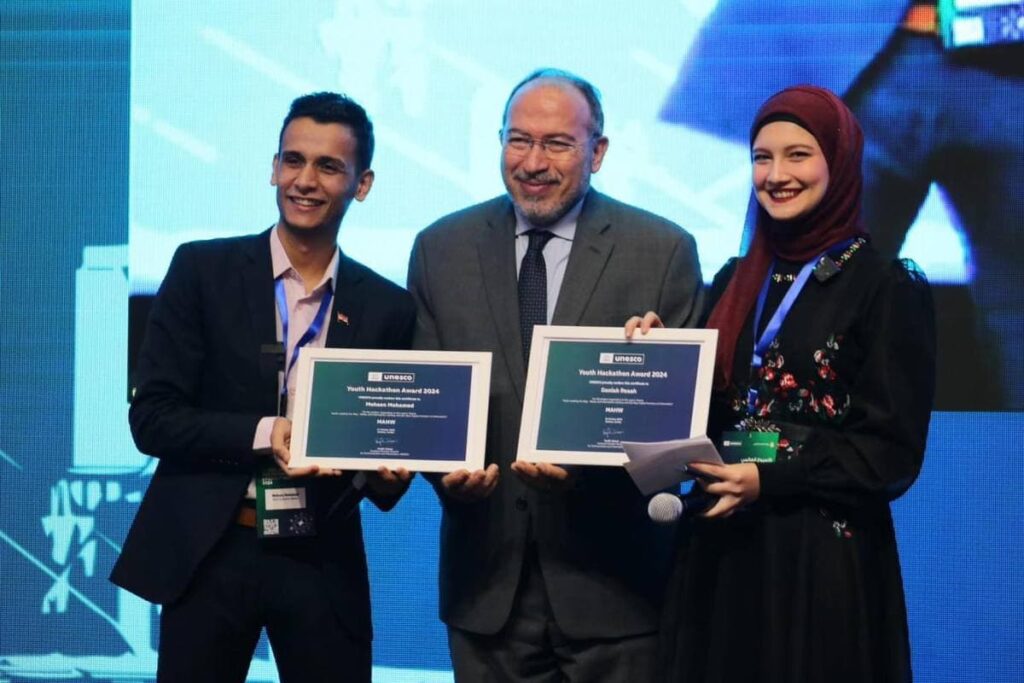Daniah Reaah
Daniah Reaah is a computer engineer, digital literacy advocate, and youth engagement officer (UNV) at UNICEF from Iraq who is redefining what it means to be a young woman in technology. From creating viral educational tech content in Arabic to developing AI-powered solutions that tackle misinformation, she is inspiring a new generation of girls in Iraq and the wider MENA region to view digital transformation as a space where they belong and can lead.

What does your work focus on?
My journey in digital development began at the age of 14, working as a graphic designer for a local magazine and becoming the go-to tech problem-solver for my family. Growing up in Iraq, where societal pressures often steer girls away from STEM, I pursued a degree in computer engineering and consistently participated in government-run tech exhibitions, frequently as one of the few women in the room.
My commitment to gender equality in technology deepened when my web app ranked among the top ten in the “She Invents” competition by Zain Iraq. That recognition motivated me to become a digital content creator, producing Arabic-language videos that simplify topics like artificial intelligence, coding, and digital literacy for my 300,000+ followers across social media. A message from a young woman, who said her family only let her study software engineering because of my videos, reminded me of the tangible societal impact of visibility and representation in tech.
Currently, as a Youth Engagement Officer with UNICEF Iraq, I lead digital literacy programs and civic participation campaigns like U-Report, helping youth, especially girls, engage safely and ethically in digital spaces. My advocacy also took me to the UAE’s Young Arab Media Leaders Program, where I received intensive training from CNN, Sky News, and Thomson Reuters in digital ethics, media literacy, and gender-sensitive communication. Through all these efforts, I aim to challenge stereotypes, promote equal access to digital resources, and prove that women not only belong in technology but are essential to its future.

What is the impact and scalability?
“Go back to the kitchen—tech is for men, not for you.” That was just one of many comments I received when I began creating tech content online. Instead of being discouraged, I used it as fuel. Today, my content has inspired thousands of young women in Iraq and across MENA to pursue careers in technology and reject outdated societal norms.
One of my most impactful initiatives is Mahw, an AI-powered misinformation detection platform I co-developed with my team. Recognizing how misinformation disproportionately harms women, by affecting their access to education, healthcare, and employment, Mahw was built as a tool to tackle this challenge at scale. The platform ranked among the top four winners out of 203 global entries during UNESCO’s Global MIL Week and has since secured funding for expansion.
With UNESCO support, we are transforming Mahw into a fully operational platform, aiming to reach 25,000 users in its first year and triple that within three years. Its architecture is designed to be culturally adaptable and regionally scalable, and we’re working to integrate it into school curricula, university programs, and community initiatives. Partnerships with NGOs, government agencies, and the private sector are already underway to ensure sustainable growth. Mahw isn’t just a technical solution, it’s an educational tool and a model for empowering women to navigate digital spaces safely and confidently.

What does being selected as an ITU160 Gender Champion mean to you, and how will you use this platform?
Becoming an ITU160 Gender Champion would be a continuation and amplification of everything I’ve dedicated my life to: empowering young women through technology, building inclusive digital spaces, and creating tools that address real-world challenges. This initiative aligns perfectly with my work at UNICEF Iraq and as a tech content creator.
Through this platform, I will forge global partnerships at the WSIS+20 High-Level Event and the AI for Good Global Summit to scale Mahw and other initiatives. I plan to co-design workshops that share best practices in gender-inclusive digital empowerment, especially for young women facing cultural and structural barriers similar to those in Iraq.
Being part of ITU160 means having a voice in global policy discussions, connecting with international leaders, and representing underrepresented young women from developing countries. I bring not only personal experience but also a growing network of digital learners, educators, and advocates who are ready to shape an inclusive, equitable future for digital transformation. With ITU’s platform, I hope to ensure that no woman is left behind in our shared digital future.